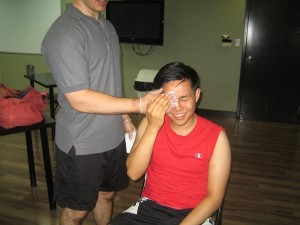Fact Checked
Overview – What Are Puncture Wounds?
- Puncture wounds are injuries which are caused by sharp items.
- These wounds transmit grime and microorganisms deep into the tissues.
- Puncture wounds Increase the risk of contamination.
- Most wounds are negligible and can be treated at home.
- Certain punctures are made by a doctor for the treatment of diseases.
- Even if the wound is sealed, puncture wounds need first aid.
Who Are At Risk Of Punctures Wounds?
- Health experts.
- Drug Addicts.
What Are The Causes Of Puncture Wounds?
Puncture wound can be caused by:
- Nails if someone scratches you.
- Needles either by a medical professional or self-administered injections.
- Teeth wounds if you get bitten.
- Objects such as bullets.
- Animals, particularly pets.
Symptoms Of Puncture Wounds

- Discomfort.
- Blood loss.
- Bruising.
- Inflammation.
Treatment
- Discontinue the bleeding by applying moderate force on the wound.
- Clean the wound.
- Try to get rid of embedded fragments carefully.
- Bathe the wound in warm water for about 15 minutes.
- Bathe the wound at least 2 – 3 per day.
- Dry the region softly.
- Put an antibiotic cream on the wound.
- Apply a dressing.
- If the dressing needs to be changed, remove cautiously.
- If the dressing sticks to the body, use lukewarm water to relax it.
- Pat dry and place a new dressing on the wound.
- Change the bandage frequently.
- Try to maintain the wound above the level of your heart, for the first day.
- Elevating the wound helps it heal quicker.
- Relax for at least one week to help with the healing process.
- Examine for signs of infection.
- Take a Tetanus Toxoid vaccination if not taken within the last 5 years.
Consult a Doctor To Prevent Any Of The Following:
- Bites from an animal or human.
- High fever.
- Blood loss.
- Deteriorating Pain.
- Lack of feeling.
- Inflammation.
- Redness.
- Discharge of pus.
- Bad odor.
Prevention Of Puncture Wounds
- Health experts should wear gloves whenever working with wounds.
- Be cautious while using needles or other sharp items.
- Exercise cautiousness while touching pets.